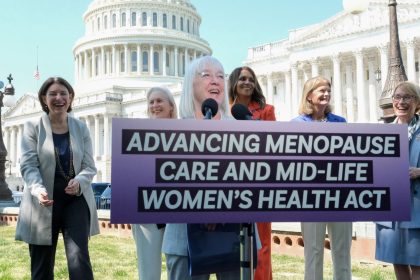Increased Telehealth Use Reduced Overdose Risk During Pandemic

WASHINGTON — An increased reliance on telehealth services and medications for opioid use disorder by Medicare beneficiaries significantly reduced their risk for fatal overdoses during the COVID-19 pandemic, the National Center for Injury Prevention and Control reported on Wednesday.
Published in JAMA Psychiatry, the study is a collaborative research effort led by researchers at the National Center for Injury Prevention and Control, a part of the Centers for Disease Control and Prevention, the Centers for Medicare & Medicaid Services and the National Institute on Drug Abuse.
According to lead author Christopher Jones, PharmD, doctor of public health, director of the National Center for Injury Prevention and Control, CDC, the results of the study add to the growing research documenting the benefits of expanding the use of telehealth services for people with opioid use disorder.
“The findings from this collaborative study also highlight the importance of working across agencies to identify successful strategies to address and get ahead of the constantly evolving overdose crisis,” Jones said.
In this national study, researchers analyzed data among two cohorts of Medicare beneficiaries to explore receipt of opioid use disorder-related telehealth services, receipt of medications for opioid use disorder, and fatal overdoses before and during the COVID-19 pandemic.
To do this, they compared data from two cohorts of Medicare beneficiaries across two time periods.
The first cohort was constructed with data from September 2018-February 2020 and included 105,162 Medicare beneficiaries with opioid use disorder (the “pre-pandemic cohort”).
The second cohort was constructed with data from September 2019-February 2021 and included 70,479 Medicare beneficiaries with opioid use disorder, (the “pandemic” cohort).
In addition, the researchers conducted an analysis to examine the demographic and clinical characteristics associated with fatal overdose in the pandemic cohort.
Key findings of this study include:
- Medicare beneficiaries who began a new episode of opioid use disorder-related care during the pandemic and received opioid use disorder-related telehealth services were found to have a 33% lower risk of a fatal drug overdose.
- Medicare beneficiaries who received medications for opioid use disorder from opioid treatment programs and those who received buprenorphine, one of the medications for opioid use disorder, in office-based settings also had reduced odds of a fatal drug overdose of 59% and 38%, respectively.
- Mortality rates (classified as all-cause mortality and drug overdose mortality specifically) were higher in the pandemic cohort compared to the pre-pandemic cohort; however, the percentage of deaths due to drug overdose were similar between the two cohorts.
“At a time when more than 100,000 Americans are now dying annually from a drug overdose, the need to expand equitable access to lifesaving treatment, including medications for opioid use disorder, has never been greater,” said Dr. Wilson Compton, deputy director of the National Institute on Drug Abuse and senior author of the study.
“Research continues to indicate that expanded access to telehealth is a safe, effective and possibly even lifesaving tool for caring for people with opioid use disorder, which may have a longer-term positive impact if continued,” Compton said.
Although the results of this study were able to identify the positive impact opioid use disorder-related telehealth services had on lowering the risk for fatal drug overdose in the pandemic cohort, the authors note that only one in five Medicare beneficiaries in the pandemic cohort received OUD-related telehealth services.
Similarly, only one in eight beneficiaries in the pandemic cohort received medications for opioid use disorder. These findings underscore the need for continued expansion of these potentially lifesaving interventions across clinical settings.
Dan can be reached at [email protected] and @DanMcCue
























